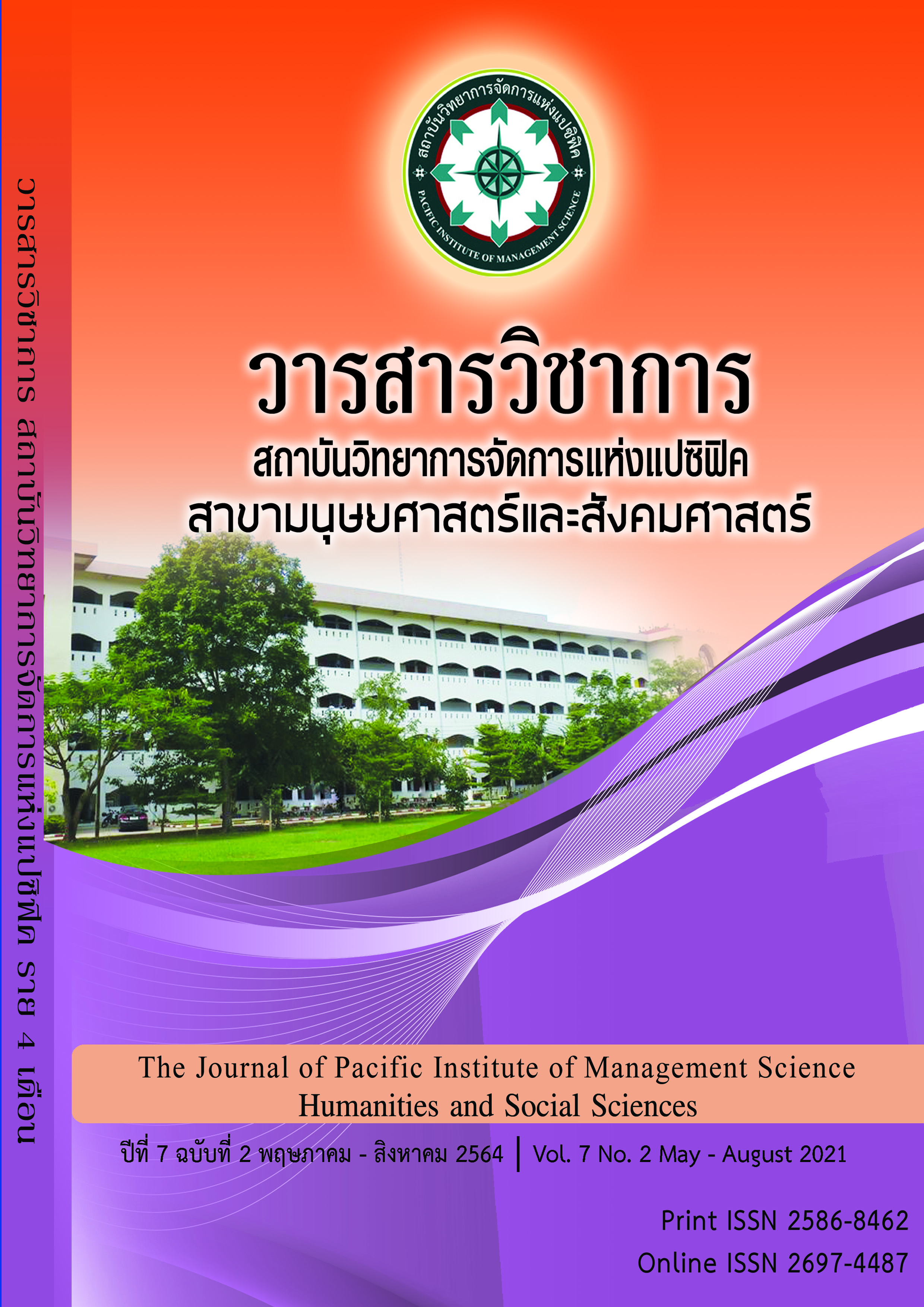Legal Problems in Attending Rehabilitation of Drug Addicts
Keywords:
Attending rehabilitation, Drug addictAbstract
This research aimed to study the legal problems in rehabilitation of drug addicts by considering the problems of 1) causes of drug abuse, 2) impacts from drug abuse, 3) legal measures for drug addiction rehabilitation. This research was a qualitative analysis by studying the conceptual documents, theories, and relevant legal documents both in Thailand and abroad in order to propose amendments of law.
The research results revealed that legal problems in rehabilitation of drug addicts were 1) causes of drug abuse depended on the persons who wanted to try it themselves and they were among friends who used drugs which important factors. Social conditions which induced drug used and manipulation included the easier to find drugs that increased the number of drug addicts, 2) effects of drug addiction especially drug users were lack of tolerance, could not control emotion. The persons who were arrested and jailed several times was offensive to society. Drug addict Would have to spend more money to buy drugs since they need to use more amount of drug. The addiction made the family suffered of psychological problems included fear of prison, jail and various punishments as well as it looked bad in society. 3) Legal measures for drug addiction rehabilitation according to the Drug Addiction Rehabilitation Act, B.E. 2545 Section 19, Paragraph one, contains a provision forbidding rehabilitation if it appears to be sought or pending prosecution for other offenses, which is an offense punishable by imprisonment or in the process of receiving imprisonment under the judgment of the court according to the Drug Addiction Rehabilitation Act, B.E. 2545. There is a principle that a drug user with a patient condition would not be a criminals. Therefore, the rehabilitation of drug addicts should be broadly done. Restricting the conditions for rehabilitation is not the objectives of the law.
Therefore, the Rehabilitation Act BE 2545, Section 19, Paragraph one should be amended, “Any person is convicted of drug offense either taker or possession for distribution or consume and distribute narcotics by type, category and quantity as prescribed in the Ministerial Regulation ...”
References
เกด ศิวาพร คารวนันท์. (ออนไลน์ 4 ตุลาคม 2563). learning2 : หลักเกณฑ์ การขอเข้ารับการฟื้นฟูสมรรถภาพผู้ติดยาเสพติด. ข้อมูลจาก http//www. lawwebservice.com › learning2 › mod › forum › discuss.
คำพิพากษาศาลฎีกาที่ 4354/2560
พระราชบัญญัติฟื้นฟูสมรรถภาพผู้ติดยาเสพติด พ.ศ. 2545
วารุณี เกิดฉาย. (2527). การคุมประพฤติผู้กระทำผิดที่เป็นผู้ใหญ่: บทบาทและหน้าที่ของพนักงานคุมประพฤติในงานควบคุมและสอดส่อง. วิทยานิพนธ์สังคมสงเคราะห์ศาสตรมหาบัณฑิต มหาวิทยาลัยธรรมศาสตร์. หน้า 13.
สารานุกรมไทยสำหรับเยาวชน เล่มที่ 9 เรื่องที่ 13 ยาเสพติดให้โทษและวัตถุออกฤทธิ์ต่อจิตประสาท
Downloads
Published
Issue
Section
License
บทความที่ได้รับการตีพิมพ์เป็นลิขสิทธิ์ของ สถาบันวิทยาการจัดการแห่งแปซิฟิค
ข้อความที่ปรากฏในบทความแต่ละเรื่องในวารสารวิชาการเล่มนี้เป็นความคิดเห็นส่วนตัวของผู้เขียนแต่ละท่านไม่เกี่ยวข้องกับสถาบันวิทยาการจัดการแห่งแปซิฟิค และคณาจารย์ท่านอื่นๆในสถาบันฯ แต่อย่างใด ความรับผิดชอบองค์ประกอบทั้งหมดของบทความแต่ละเรื่องเป็นของผู้เขียนแต่ละท่าน หากมีความผิดพลาดใดๆ ผู้เขียนแต่ละท่านจะรับผิดชอบบทความของตนเองแต่ผู้เดียว







